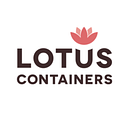What is Supply Chain Sustainability?
A supply chain is a global network to deliver products and services, from sourcing raw materials to offering the product or service to end customers. The supply chain process encompasses activities, people, entities, information, and resources.
In recent years, environmental safety has become the topic of utmost importance in primary concern worldwide. Customers, employees, and investors are moving towards the planet-friendly approach. As a result, supply chain businesses are now compelled to move toward sustainable business practices. And hence the term supply chain sustainability has come into the picture.
What does the term sustainability mean? Why is it so important?
The most basic definition of sustainability is using the resource to meet the present generation’s needs and requirements without endangering future generations’ ability to meet their needs. Environmental protection, economic development and social development are three crucial pillars that sustainability covers.
With the pace at which the world is using the resources, the human race will soon run out of fossil fuel, and many animal species will also become extinct. More and more businesses are now moving towards a sustainable approach, considering the present degradation rate of the earth, and so is the shipping and shipping container industry.
What is Supply Chain Sustainability?
Supply Chain Sustainability refers to managing the social, environmental, and economic impacts of supply chains throughout the lifecycles of goods and services. The purpose is to decrease ecological harm from elements like power usage, water intake, and waste production while positively influencing humans and groups in and around their operations. It aims to create, protect and develop long-term environmental, social and financial value for all those shareholders who are part of bringing services and products to market.
Why is the supply chain industry moving towards sustainability?
There are plenty of reasons for supply chain enterprises to approach sustainability. First, with the growing concern for the earth’s environmental condition, governments worldwide are passing rules and regulations for sustainable business conduct. Companies now ensure they conduct business in compliance with the government’s laws and regulations. In addition, consumers and investors are rejecting those businesses that are sluggish in developing sustainability goals. Companies are taking all necessary sustainable steps to seek benefits and high ROI and stay ahead of their competitors.
Steps to incorporate sustainability goals in the supply chain
Initiate Sustainable Business Strategy
To begin their sustainability journey, enterprises must have a central sustainable approach. They must analyse the functioning of their entire supply chain network and find out which field requires improvement.
Embrace the benefits of digitalization
With the help of the most advanced digital technologies, companies can now keep track of their hazardous environmental activities, such as the rate at which they release carbon into the atmosphere or the use of single plastic in their working. They can then measure their performance and use automation and data analytics to refine their supply chain operations.
Reduce carbon emissions in the supply chain
The supply chain industry significantly contributes to carbon emissions. Supply chain leaders must devise measurable goals to achieve zero emissions and ensure they are accounting for and managing climate-related emissions across their supply chain network.
Circularity sustainability
With the help of the most advanced and cutting-edge digital technologies, companies can efficiently reduce, reuse, recycle and use reclaimed materials to eliminate waste production to eventually adopt a circular business model.
Integrate sustainability
Employees at all levels of the supply chain should be given the training to understand the importance of sustainability. They should be well aware of the measures they can take to align their performance with the company’s sustainable goals.
Track performance
Incorporate specific and measurable key performance indicators to help you keep track of your organization’s sustainability progress. Constantly tracking your progress, you can find out the areas for improvement. And with this, take your supply chain a step forward toward a sustainable business approach.
Hurdles in sustainable supply chain approach
The primary obstacle to sustainable supply chains is the cost. The entrepreneurs find it particularly difficult to manage the upfront costs for making a supply chain more sustainable. Keeping the cost factor aside, an investment in a sustainable approach like compact packaging, for instance, can result in fewer shipments, a lower environmental footprint, and cost savings over the years. In addition, some organizations believe there aren’t sustainable alternatives for the supply chain. And shifting toward sustainable practices might be challenging because of complexity or organizational structure.
The momentum for sustainable development goals in the operational logistics industry will continue in the years to come. With the world moving toward a sustainable approach, it has become crucial to attain sustainability in the supply chain. With the help of a centralized sustainability strategy and data-driven insights, the supply chain will be able to mitigate the harmful impact of its functioning on the environment. No doubt, the implementation of a sustainable supply chain is challenging. Still, if the supply chain industry successfully manages to overcome the hurdles, it will benefit themselves and the environment.
